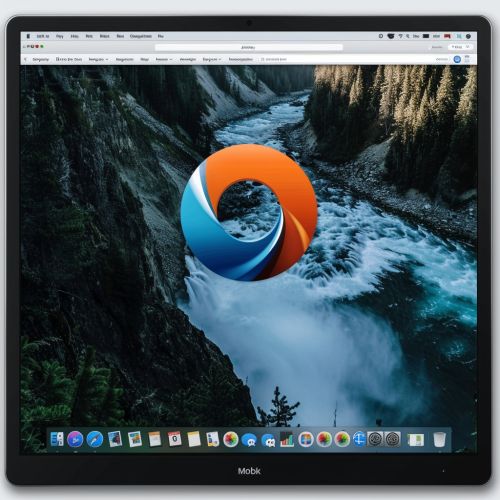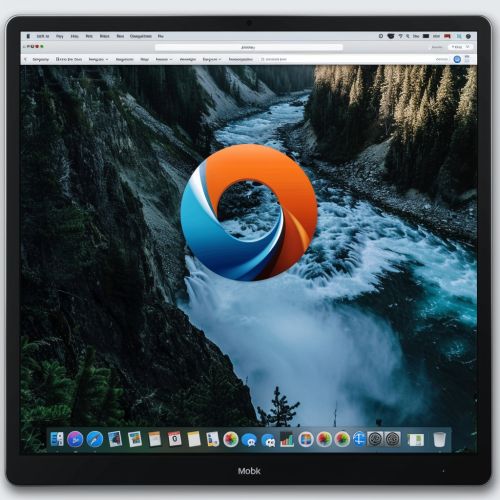Mozilla Firefox: Difference between revisions
(Created page with "== Introduction == Mozilla Firefox, commonly referred to as Firefox, is a free and open-source web browser developed by the Mozilla Foundation and its subsidiary, Mozilla Corporation. Initially released in 2002 under the codename "Phoenix," Firefox was created as part of the Mozilla Application Suite. It has since evolved into one of the most popular web browsers globally, known for its speed, security, and customization options. == History == === Early Development ===...") |
No edit summary |
||
| Line 19: | Line 19: | ||
Firefox is known for its performance, particularly in terms of speed and memory usage. The browser's Quantum project, introduced in Firefox 57, significantly improved performance by leveraging modern multi-core processors and optimizing the rendering engine. Firefox also includes features such as hardware acceleration and support for the WebAssembly standard, which allows for near-native performance of web applications. | Firefox is known for its performance, particularly in terms of speed and memory usage. The browser's Quantum project, introduced in Firefox 57, significantly improved performance by leveraging modern multi-core processors and optimizing the rendering engine. Firefox also includes features such as hardware acceleration and support for the WebAssembly standard, which allows for near-native performance of web applications. | ||
[[Image:Detail-97275.jpg|thumb|center|A screenshot of the Mozilla Firefox browser displaying a webpage.|class=only_on_mobile]] | |||
[[Image:Detail-97276.jpg|thumb|center|A screenshot of the Mozilla Firefox browser displaying a webpage.|class=only_on_desktop]] | |||
== Extensions and Customization == | == Extensions and Customization == | ||
Latest revision as of 13:46, 27 July 2024
Introduction
Mozilla Firefox, commonly referred to as Firefox, is a free and open-source web browser developed by the Mozilla Foundation and its subsidiary, Mozilla Corporation. Initially released in 2002 under the codename "Phoenix," Firefox was created as part of the Mozilla Application Suite. It has since evolved into one of the most popular web browsers globally, known for its speed, security, and customization options.
History
Early Development
The origins of Firefox can be traced back to the Mozilla project, which was initiated by Netscape Communications Corporation in 1998. The project aimed to create a new web browser based on the open-source model. The first version of Firefox, then called Phoenix, was released on September 23, 2002. The name was later changed to Firebird and finally to Firefox to avoid trademark conflicts.
Major Releases
Firefox 1.0 was officially released on November 9, 2004. This version introduced features such as tabbed browsing, a pop-up blocker, and an integrated search system. Subsequent versions have continually added new features and improvements. Firefox 2.0, released in October 2006, introduced a built-in spell checker and session restoration. Firefox 3.0, released in June 2008, featured significant performance improvements and the introduction of the Gecko 1.9 rendering engine.
Features
User Interface
Firefox's user interface is designed for simplicity and ease of use. The browser features a customizable toolbar, a unified search and address bar (known as the "Awesome Bar"), and support for themes and extensions. The interface has undergone several redesigns, with the most recent being the Proton redesign introduced in Firefox 89.
Security
Security has always been a primary focus for Firefox. The browser includes features such as phishing and malware protection, a pop-up blocker, and support for HTTPS. Firefox also offers a Private Browsing mode, which prevents the browser from storing history, cookies, and temporary files. Additionally, Firefox includes a built-in password manager and support for multi-factor authentication.
Performance
Firefox is known for its performance, particularly in terms of speed and memory usage. The browser's Quantum project, introduced in Firefox 57, significantly improved performance by leveraging modern multi-core processors and optimizing the rendering engine. Firefox also includes features such as hardware acceleration and support for the WebAssembly standard, which allows for near-native performance of web applications.


Extensions and Customization
Firefox is highly customizable, with support for a wide range of extensions and themes. The browser's extension system, known as WebExtensions, is compatible with the extension APIs used by other browsers such as Google Chrome and Microsoft Edge. This compatibility allows developers to create cross-browser extensions with minimal effort. Firefox also supports user scripts and user styles, which allow users to modify the behavior and appearance of websites.
Developer Tools
Firefox includes a comprehensive set of developer tools, which are accessible via the "Web Developer" menu. These tools include an Inspector for examining and modifying the HTML and CSS of a webpage, a Console for logging and debugging JavaScript, and a Network Monitor for analyzing network requests. Firefox also includes a built-in JavaScript debugger, a performance profiler, and support for remote debugging.
Privacy and Data Collection
Mozilla has a strong commitment to user privacy, and Firefox includes several features designed to protect user data. The browser includes Enhanced Tracking Protection, which blocks trackers and third-party cookies by default. Firefox also supports DNS over HTTPS (DoH), which encrypts DNS queries to prevent eavesdropping and tampering. Mozilla's privacy policy is transparent about the data collected by Firefox, and users have the option to disable data collection entirely.
Firefox has faced significant competition from other web browsers, particularly Google Chrome. Despite this, Firefox maintains a dedicated user base and continues to be a popular choice for users who value privacy and customization. According to StatCounter, Firefox held a global market share of approximately 7.95% as of September 2021.
Development and Governance
Firefox is developed by the Mozilla Foundation, a non-profit organization, and its subsidiary, Mozilla Corporation. The development process is open and community-driven, with contributions from both Mozilla employees and volunteers. Firefox's source code is available under the Mozilla Public License (MPL), which allows anyone to view, modify, and distribute the code.
Future Directions
Mozilla continues to innovate and improve Firefox, with a focus on performance, security, and user experience. Upcoming features include further enhancements to the Quantum rendering engine, improved support for web standards, and new privacy features. Mozilla is also exploring new technologies such as virtual reality (VR) and augmented reality (AR) through projects like Firefox Reality.
